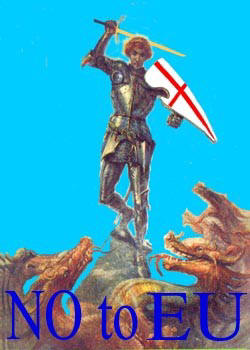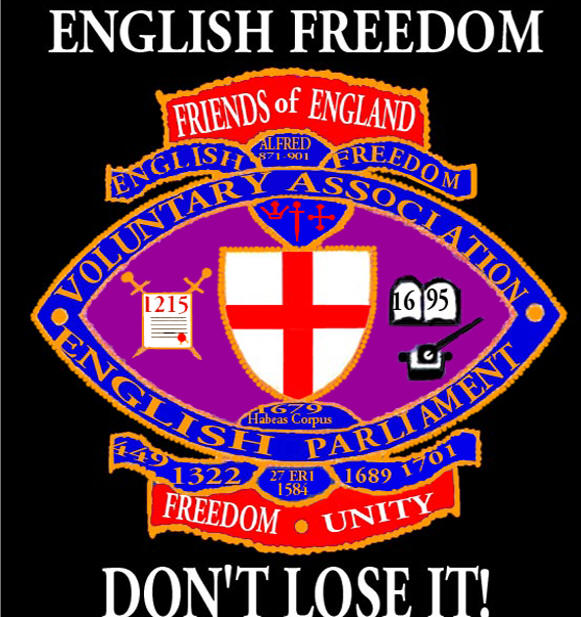|
|
|||||
 |
|
 |
|||
‘THE MAKING OF THE
ENGLISH CONSTITUTION’****
OUR CONSTITUTION OF OVER A THOUSAND YEARS – WHY DOES BLAIR MEAN TO DESTROY IT?****OUR DISCREDITED DEMOCRACY OR IRAQ DICTATORSHIP****OUR LOYALTY TO OUR
INSTITUTIONS AND COUNTRY?****Liberties of Parliament-
Birthright of Subjects of England.****LOSS of TRUST in NEW LABOUR****New England’s Tears for Old England’s fears?****The House of Commons has a need of members dedicated to
their Country-not time wasters.****English Constitution, by it they lived, for it they died****CABINET GOVERNMENT
IS NOW A DICTATORSHIP****MESSAGE FROM
AUSTRALIA SUPPORTS THE CROWN
|
||
Our
Parliament and Nationalism – Why it should concern us now! - Part II The absence, or rather the confusion of class distinctions, which dates from before the Norman Conquest, was confirmed by parliament. The ‘estates’ of which we read in its “Rolls” had little of caste rigidity; the judges, for instance, are called an estate, but in England judicial office never became hereditary, as in France, and such great offices of state as did become hereditary soon lost their importance. Prelacy also is called an “estate,” but prelacy, like the judiciary, was always a career that was open to talent. Nor was there any demarcation of birth between the knights and bannerettes, which sat in the House of Commons, and the barons, who sat in the House of Lords. Elected knights and bannerettes were often “chevaliers” and commonly called nobles; there were “barons” of the Cinque Ports and of the exchequer who were not “peers of the realm” and the distinction between the “nobility” and the gentry of England in the fourteenth century was as vague as it is to-day the meaning of gentleman. Even the serio-comic distinction, made by the College of Arms between those who had inherited or bought the right to bear arms and those who have not, had not been invented. Co-operation and community of sentiment were thus comparatively easy; and the separatist tendencies of deliberation by “estates” were checked by the common action, which followed it in the parliament chamber. In 1332 we read, for instance, that the estates first answered separately et puis tous en commune; and although acts of parliament are now made law by the royal consent given in what has come to be called the house of lords, the presence of the Speaker and some of the commons, which is always required, still bears evidence to this common action of all the estates. It was in Parliament that differences of local and
class sentiment had to be accommodated and fashioned into a national
determination; and the result was effected more and more by mutual interchange
of views, less and less by the arbitrament of a superior authority. Far more of the work of parliament was done
by conference in the Painted Chamber or elsewhere than was the case after the
amalgamation of the various estates and the severance of parliament into two
houses. The fluidity of medieval ideas about “estates” facilitated the unifying work of the crown in parliament. Their number and the vagueness of their delimitation, which depended more upon royal writ than upon any question of status, hindered the adoption of the continental theory, that the assent of each estate was essential to legislation. It is true that phrases expressing the assent of the lords spiritual and temporal and the commons in parliament assembled came to be customarily used in acts of parliament; but it is certain that their employment had not become essential by the end of the fifteenth century, and a great deal of legislation was passed as late as the reign of Henry V11 without any further testimony to its legality than the fact that it had been enacted by the king in parliament. Moreover, the “assent of the lords spiritual and temporal” did not mean their several assent, and the validity of the statutes of provisors and praemunire, as well as of Elizabeth’s acts of supremacy and uniformity, depends upon a repudiation of the theory that the assent of the lords spiritual was requisite for such legislation. For no other “estate” has a claim ever been made. The assent of the lords was sought not
because they were one or two “estates” but because they were consiliarii nati
of the crown. The assent of the commons was claimed as necessary not on the
ground that they were an estate, but because they were the communitas
communitatum…. …Before parliaments existed, the granting of charters by the crown had exhibited the same tendency to expand from individualism and particularism to collectivism. The earliest charters are to individual persons or boroughs; then came charters to classes, such a tenants-in-chief and merchants, and finally the great charter, which at any rate mentions all classes of the community. The confirmation of the charters by Edward 1 marks the culmination of the charter and the point at which the charter merges into parliamentary legislation. Here,
too, the individual petition comes first, and gradually merges into petitions
which are common, except that the church is reserved. It is not, of course, that all legislation is general or public,
but the Commons backs all legislation. The distinction is clearly marked in the last volume of the “Rolls of Parliament.” About half the petitions are common; the rest are presented by the commons ex parte, on behalf Of some individual person or corporation. The former become public, the latter private acts; and this familiar differentiations first adopted in the sixteenth-century statutes, although the principle of discrimination is not that adopted to-day; and grants of taxes to the crown are often, in Henry V11’s reign, classed as private acts. Still they are all acts done in a national parliament, and that is the recognized method of making secular law at the end of the middle ages. The nationalization of politics was fatal to the medieval
conception of jurisdiction as something inherent in lordship of the land; and
by a process which has never been traced in detail parliaments developed a
practice of making heir legislation applicable tam infa quam extra libertates
within as well as outside liberties.
Gradually the distinction between one franchise and another, and between
all franchises and the remainder of the realm, were whittled away; and ideas of
legal uniformity and of equality before the law begin to find expression in
phrases that meant more than the old and empty platitude omnes hominess
natura aequales sunt. The King of England, the Emperor Charles V was told in 1551,had but one law by which to rule all his subjects, and that was law made in Parliament. Nothing could be less medieval: a contour map of medieval England indicating the various heights of jurisdictional privilege would have revealed an infinite diversity of in equality; and a vast and patient work of leveling was required before the vast and patient work of leveling was required before the king’s writ ran through the land and reduced its people to equality in his courts of law. But the equalization of liberty by means of parliament
must be reserved for separate treatment, and so must the nationalization of the
church, the greatest of medieval liberties and the latest of the spheres into
which parliament ventured to intrude.
|
